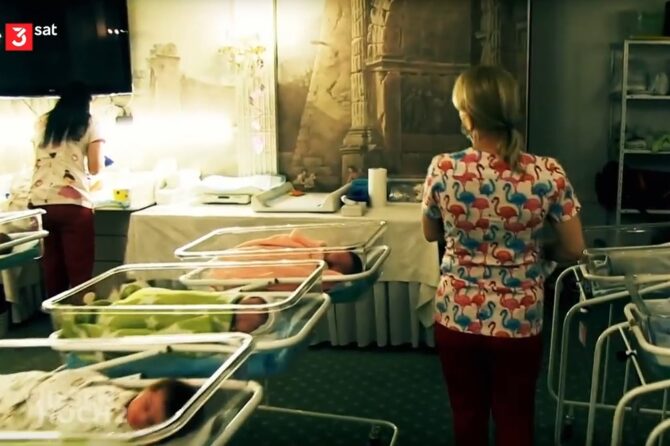
Children: Desire and Reality
On November 19, the leading German channel 3Sat broadcasted the show “Scobel – Children: Desire and Reality.”
Three experts Helga Kruger-Kirn, psychologist-psychotherapist, Jan-Steffen Krüssel, specialist in reproductive medicine, Giovanni Mayo, medical ethicist, and host of the show, Gert Skobel discussed the reasons and perspectives of the desire to have children.
Reproductive medicine involves power and gives an idea that it is possible to postpone the desire to have a child. Is there a right to have a child? Where are the ethical boundaries? Desired child thanks to egg donation? Egg freezing? Embryo donation? Surrogacy?
The show discusses the outdated German Embryo Protection Act of 1990, valid in today’s Germany and not taking into account modern realities and technologies at all, thus making it impossible to help infertile couples.
Therefore, the show raises the question of legalizing egg donation, since, according to German law, it is impossible to transfer donor’s eggs. However, sperm donation is allowed. Why there is such a difference?! But paradoxically, embryo donation is allowed.
In addition, there is a bunch of other laws regulating reproductive medicine in Germany, so reproductive specialists must also be in a sense lawyers to take into account all the aspects.
And of course, the topic of surrogacy is not forgotten. It is strictly prohibited and punishable in Germany. Mediation in surrogacy is also punishable, although informational lectures and advertising for agencies are allowed.
But there is no punishment for infertile couples using such services abroad. For example, in Ukraine, because commercial surrogacy is allowed there. During the discussion of surrogacy in Ukraine, there were shown footage from the most famous Ukrainian clinic BioTexCom, whose owner is a German citizen. The voiceover is accompanied by footage from Babyroom, a sensational video showing babies at the time of the closure of the borders when 80 newborns stayed in the clinic’s hotel for a month and a half, and footage with packages, services, and videos from their website.

In Ukraine, a surrogate mother receives compensation and after the birth of a child transfers the baby to the parents. A German citizen, who is a genetic father of a child, receives legal paternity in Ukraine, and his wife must subsequently adopt the child.
According to research, a surrogate mother does not get attached to the child, a possible emotional attachment is left aside.
German legislation definitely needs to be reformed, and the degree of its change is still a matter of time. In the meantime, couples continue to use various alternative methods for having a baby, despite all prohibitions.
You can watch the video following the link:
https://www.3sat.de/wissen/scobel/scobel—kinder-wunsch-und-wirklichkeit


